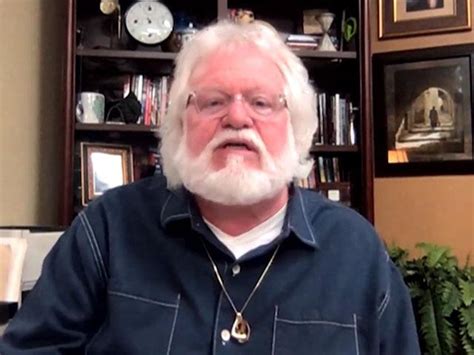A Quote by William Allen White
Never use the word, 'very.' It is the weakest word in the English language; doesn't mean anything. If you feel the urge of 'very' coming on, just write the word, 'damn,' in the place of 'very.' The editor will strike out the word, 'damn,' and you will have a good sentence.
Related Quotes
Never use a metaphor, simile, or other figure of speech which you are used to seeing in print. Never use a long word where a short one will do. If it is possible to cut a word out always cut it out. Never use the passive voice where you can use the active. Never use a foreign phrase a scientific word or a jargon word if you can think of an everyday English equivalent. Break any of these rules sooner than say anything outright barbarous.
What happens when you speak colloquial Hebrew is you switch between registers all the time. So in a typical sentence, three words are biblical, one word is Russian, and one word is Yiddish. This kind of connection between very high language and very low language is very natural, people use it all the time.
I was like, "This is a new thing that the gay people have decided? That's the gayest thing I've ever heard in my life." You can't do that. You can't decide that a word is forbidden now collectively amongst your group of human beings, that the word is a slanderous evil nasty word about homosexuals. It's not, the word doesn't mean that. And sometimes it's a good word to use in comedy. That's what your friend has to realize when he's at a bar just yelling out the word.
A new baptism I'll give you, and My very finger I will place in My people's keeping. When you point your finger, demons will flee! In this year of honey, I will cause a new hunger to arise throughout the lands for My Word. And where you have known My Word in the past, you will taste and see My Word in a different way!
Praise the name of baseball. The word will set captives free. The word will open the eyes of the blind. The word will raise the dead. Have you the word of baseball living inside you? Has the word of baseball become part of you? Do you live it, play it, digest it, forever? Let an old man tell you to make the word of baseball your life. Walk into the world and speak of baseball. Let the word flow through you like water, so that it may quicken the thirst of your fellow man.
It doesn't matter what word we use, if it has the same content, it will be treated in the same way. There are other words - there's "womanist," there's "mujerista," there's "women's liberationist" - all mean the same thing and they get the same ridicule. I think we just need to choose what word we feel comfortable with that says women are full human beings, and whatever that word is, it will get a lot of opposition. But it will also attract a lot of support. But this is a revolution, not a public relations movement.
Every sentence has a truth waiting at the end of it and the writer learns how to know it when he finally gets there. On one level this truth is the swing of the sentence, the beat and poise, but down deeper it's the integrity of the writer as he matches with the language. I've always seen myself in sentences. I begin to recognize myself, word by word, as I work through a sentence. The language of my books has shaped me as a man. There's a moral force in a sentence when it comes out right. It speaks the writer's will to live.




































